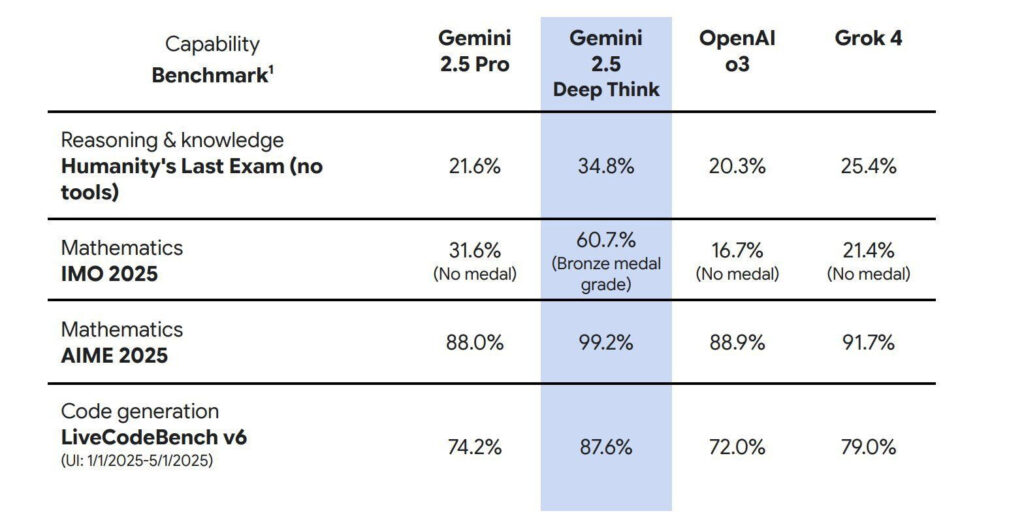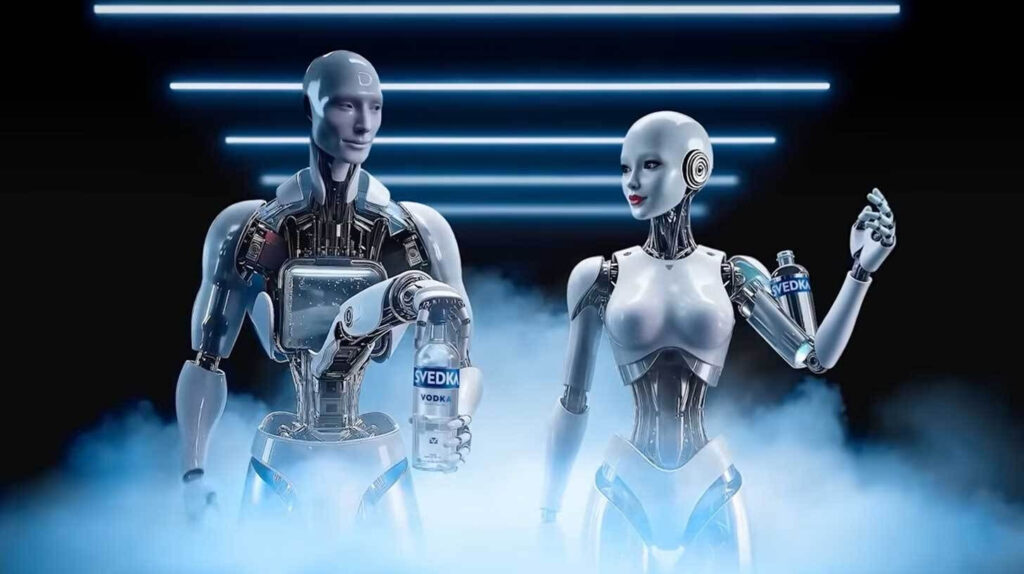Google has made a major leap in artificial intelligence development with the introduction of the Gemini 2.5 Deep Think model—the first publicly available multi-agent system that uses parallel thinking to solve the most complex challenges. Instead of offering a direct answer, this model “creates” a team of AI agents that simultaneously explore different paths to a solution and then collectively decide on the optimal outcome.
The model was first unveiled at this year’s Google I/O conference and is based on a variant that won a gold medal at the International Mathematical Olympiad. In practice, this means that when faced with a truly difficult question, Gemini 2.5 doesn’t rely on just one line of reasoning—it simultaneously activates multiple processes, resulting in more intelligent and deeply considered answers.
In a benchmark test known as “Humanity’s Last Exam,” it achieved a score of 34.8%, outperforming OpenAI’s o3 model and Grok 4. It also excels in tasks related to coding and web application development, where it has set new industry standards.
Gemini 2.5 Deep Think is currently available to users subscribed to the Ultra plan through the Gemini app (subscription costs $250 per month), while its IMO variant is reserved exclusively for selected researchers and academics.
While Meta invests in developing personal superintelligence, Google is taking a different approach—empowering scientists, engineers, and researchers with tools that allow them to view problems from multiple perspectives and make smarter decisions.
In Brief: Tech World Highlights
- Genesis AI, a startup developing robotics software, has raised $105 million from both American and Chinese investors in a rare cross-border investment within a geopolitically divided industry.
- Researchers at University College London have developed a system that enables robots to move objects collaboratively using inaudible high-frequency sound waves.
- Unitree has surpassed a valuation of $1.7 billion and reached an annual revenue of $140 million thanks to the launch of humanoid and quadruped robots into the market.
- A new Australian study on six major Asian cities has shown that these urban centers are poorly prepared for the social and economic impacts of a high robot presence in the future.
- Tech entrepreneur and investor Vinod Khosla predicts that artificial intelligence will automate 80% of high-value jobs by 2030, ushering in a wave of unprecedented disruption.
AI Trending Tools:









